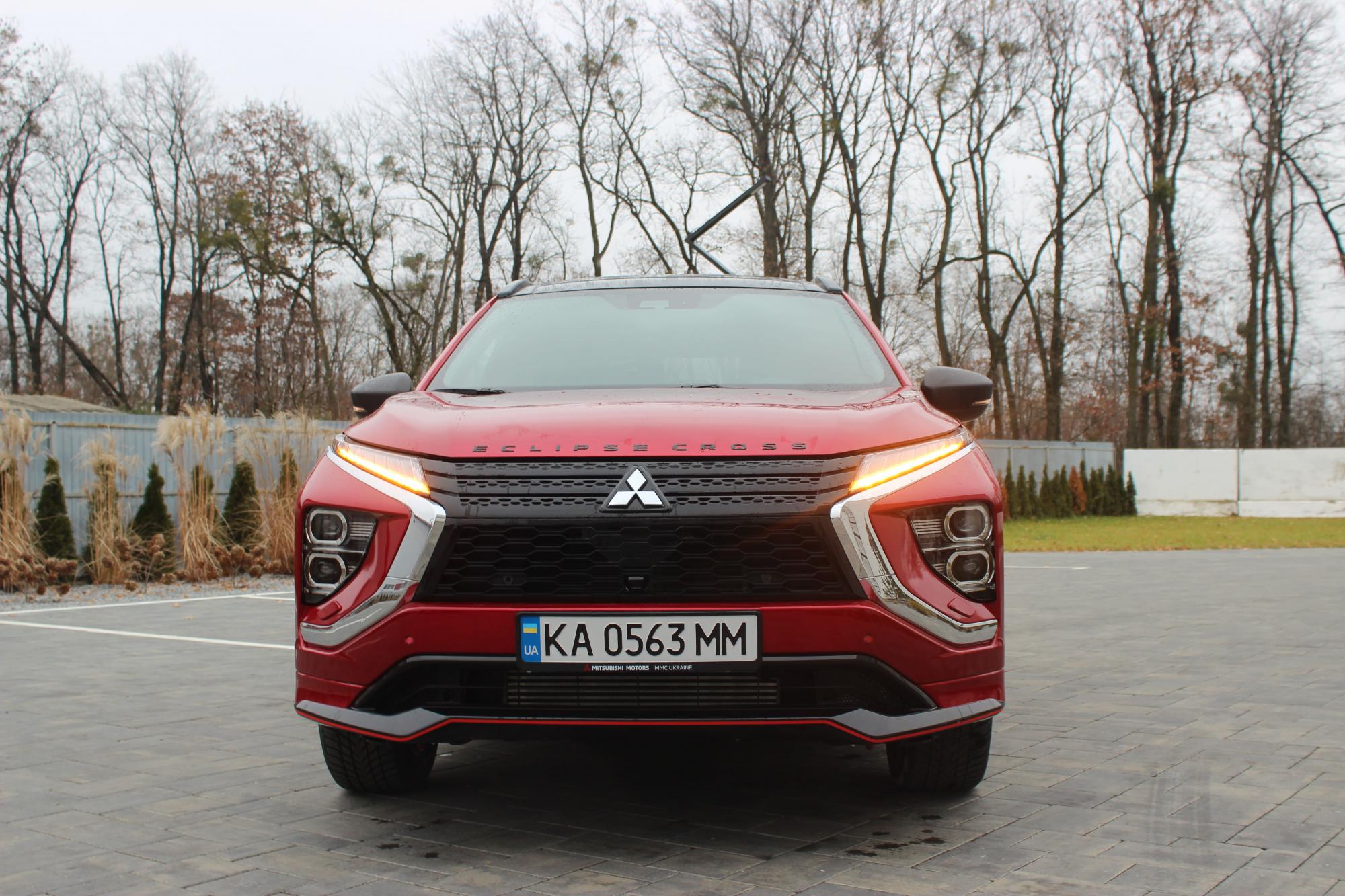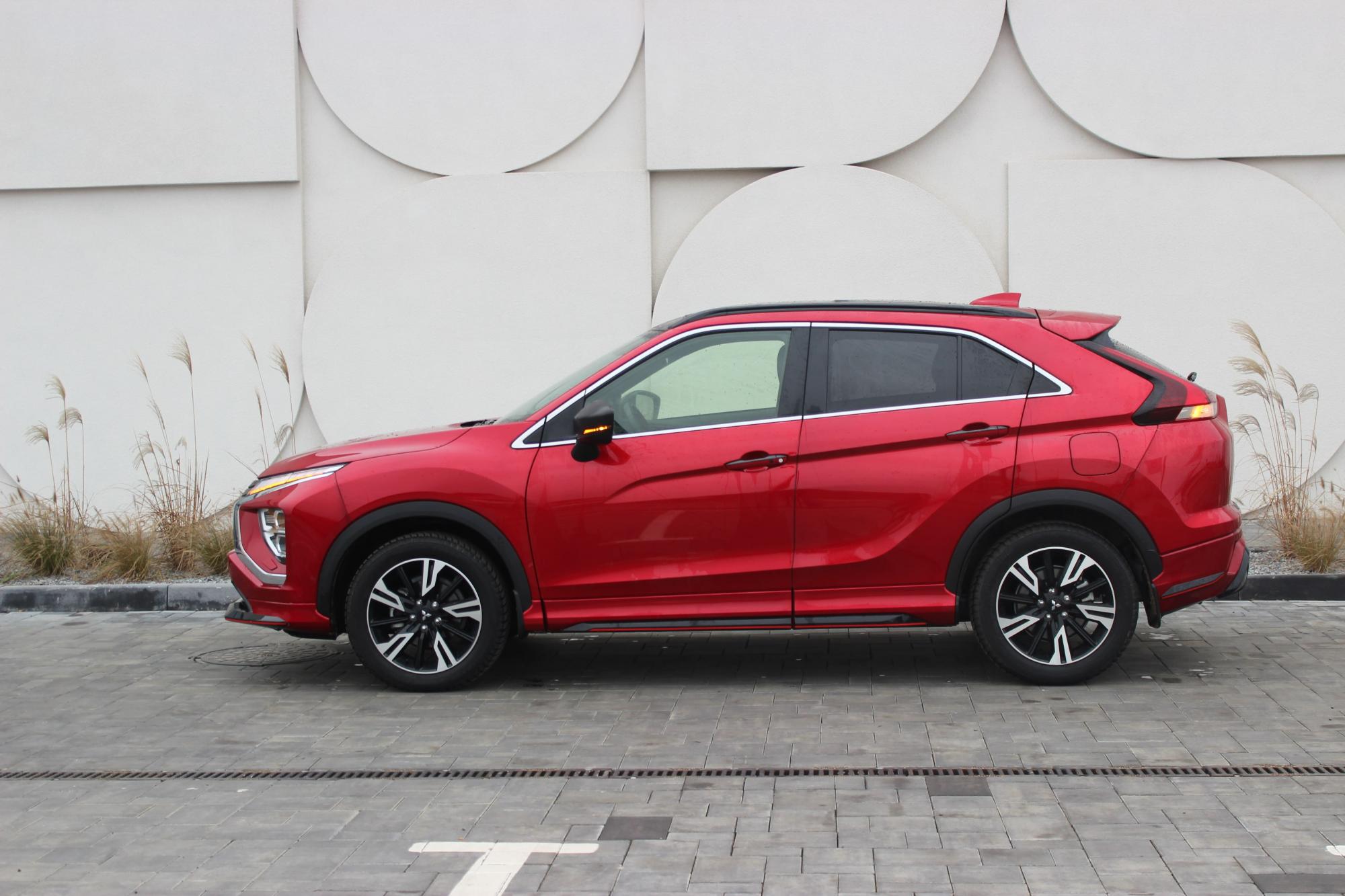Mitsubishi Eclipse Cross Test Drive: Exploring the pros and cons of this coupe-style crossover. Discover its strengths and weaknesses in our detailed review.
With each new model, youth-oriented coupe-like crossovers are increasingly shedding their off-road characteristics and moving closer in both technology and design to the hatchbacks and station wagons that were popular in the past. However, there are still models on the market that, despite their unusual shapes, strive to stay true to tradition and even "carry" an all-wheel-drive system on board. Today, we have the updated Mitsubishi Eclipse Cross for testing.
An Interesting Perspective
Mitsubishi, with the update of the Eclipse Cross, not only performed the traditional "facelift" of the exterior but also made several significant changes, primarily taking customer feedback into account. Overall, although the model has been on the market for over 6 years, it continues to enjoy stable demand among those who seek a classic interior behind an interesting exterior.
 5
5
It is worth noting that with the facelift, the Japanese crossover has acquired a modified appearance with a redesigned rear end. The main modernization is that the rear door has lost its signature additional glass section. In general, the revamped front, now in the corporate Dynamic Shield style, has become more aggressive: the low and high beam headlight blocks have moved lower, leaving only narrow LED strips for daytime running lights in their place. The bumper and grille are also new.
The vehicle has also seen a significant increase in dimensions. Due to the extended front and rear overhangs, the crossover has grown by 14 centimeters in length: from the front to the rear, the updated Eclipse Cross measures 4545 mm instead of the previous 4405 mm. With the update, the coupe-like crossover is now 18 cm longer than the platform-sharing Mitsubishi ASX, which has the same wheelbase of 2670 mm.
 6
6
Since the height and width of the body have not changed, nor has the distance between the axles, passengers are unlikely to notice the increase in length; however, the trunk has become noticeably larger, with its usable volume increased from 341 liters to 406 liters.
 7
7
Interestingly, the "Eclipse" retains the uniquely Japanese fuel filler flap with a separate lock and interior release mechanism, meaning you can't forget to open the cap at the gas station. In the worst-case scenario, the attendant won't be able to add fuel to the car's tank. Additionally, it's rare to encounter "jet" nozzles these days. However, a week of familiarity showed that this technical solution is certainly not a flaw - there are only six jets for the entire windshield. Moreover, you can briefly spray the glass, saving on winter fluid.
 8
8
A Balance of Tradition and Technology
Inside, the key update compared to the "pre-facelift" version is the new media system with an eight-inch touchscreen display, which is now positioned much closer to the front passengers.
 9
9
This change allowed Japanese engineers to eliminate the rather odd and not always responsive touchpad from the transmission tunnel. Overall, in terms of multimedia, the car stands up well against key competitors: it supports wireless Apple CarPlay, features several cameras for a surround-view system, and has an integrated voice assistant.
 0
0
However, alongside modern technologies, the car also features elements from the past decade: a large gear shift lever, a massive non-adjustable driver's armrest, and seats made of high-quality genuine leather. Or can this list also be seen as a drawback for the car? According to the automotive editorial team of RBC-Ukraine, it's more a matter of being old-fashioned than flaws. Additionally, on the center console, below the air vents, there is a physical climate control unit, and the buttons for heating the windshield and steering wheel are among the largest compared to competitors. Getting into the car in the cold, you won't miss even with gloves on.
 1
1
The trunk has noticeably increased, now accommodating up to 406 liters. Moreover, if you slide the rear seats forward, this figure exceeds 500 liters, and with the rear seats folded down, the cargo area reaches 1149 liters. Interestingly, without the optional panoramic roof, this value would be slightly higher.
 2
2
The main complaint about the trunk is its significant height, requiring effort to lift cargo. However, under the floor, there is not just a repair kit or a temporary spare tire, but a full-size spare on an alloy wheel, just like the main four wheels. You certainly don't see that very often today.
 3
3
150 for Each
The car is available with two gasoline engines - a 2.0-liter naturally aspirated engine and a 1.5-liter turbocharged engine, both producing 150 hp. The test crossover is equipped with the turbo engine, paired with a Jatco JF016E continuously variable transmission.
Overall, the 1.5-liter turbo version is far from sporty. It keeps pace with urban traffic but overtaking on the highway requires pushing the pedal to the floor. However, it's important to remember that the car features an all-wheel-drive system, meaning the engine often drives not just a pair but all four wheels simultaneously. The S-AWC all-wheel-drive system has three modes - normal, "Snow," and "Mud." It feels that by default, the car is front-wheel drive, but in "snow" mode, a portion of the torque is immediately transferred to the rear axle.
 4
4
The turbo engine does not favor fast driving. The issue is that at speeds exceeding 110-120 km/h, the RPMs climb above 2,500, and fuel consumption also rises, reaching 8 liters per 100 km. Interestingly, in the city, the car consumes relatively little for its size - less than 9 liters of "95" octane fuel per hundred kilometers.
With new damper settings, the well-known GS platform featuring MacPherson struts at the front and multi-link suspension at the rear, which we have known since the early 2000s across numerous Mitsubishi, Dodge, Jeep, and Chrysler models, has changed its character and become more comfortable. Yes, on a straight path with uneven surfaces, the car holds its course well and "grips" the road, but in corners, the body roll is more pronounced than expected.
 5
5
The suspension could easily be a class leader for comfort and resilience if it weren't for the harsh response to particularly sharp bumps in worn winter asphalt. On a positive note, the ground clearance has been increased by 16 mm, now measuring 199 mm.
Price Point
In the Ukrainian market, our test subject is available in two versions and two trim levels. The base option is the INTENSE crossover with a 2.0-liter naturally aspirated engine. The price for this combination is 1,221,000 UAH. The second option, priced at 1,417,000 UAH, features the turbo engine in the ULTIMATE trim. Different trim packages with the same powertrain are not offered.
Among the key differences of the more expensive modification that we tested are a more modern engine, all-wheel drive, a package of electronic assistants with adaptive cruise control, leather upholstery, a heads-up display, a power liftgate with a contactless access sensor, etc.
 6
6
Advantages and Disadvantages of the Mitsubishi Eclipse Cross
Key advantages of the Japanese crossover include:
- Presence of all-wheel drive system
- Full-size spare tire in the trunk
- Spacious rear seating
- Intuitive controls
- Comfortable suspension
Disadvantages of the Mitsubishi Eclipse Cross include:
- Excessive fuel consumption
- Inconvenient trunk configuration
- Absence of diesel and hybrid versions in the lineup
- No digital instrument panel as an option
- Fuel filler flap can only be opened from inside the cabin